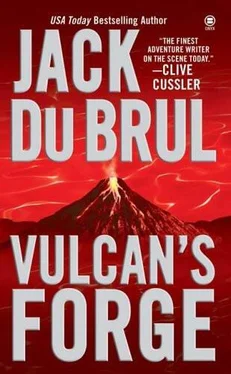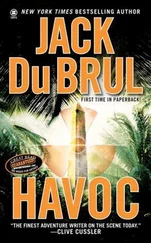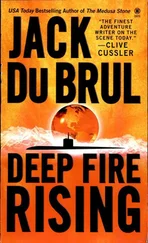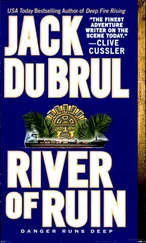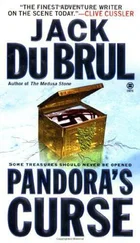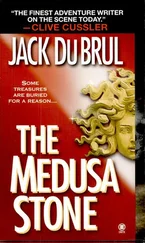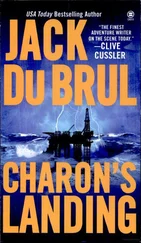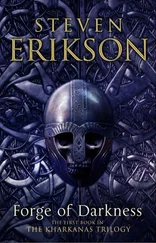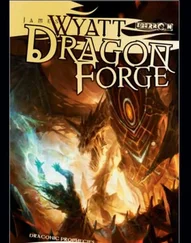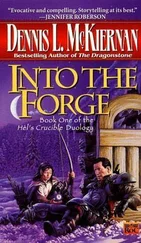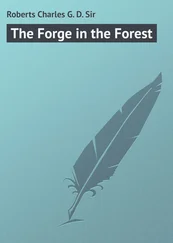Jack Du Brul - Vulcan's forge
Здесь есть возможность читать онлайн «Jack Du Brul - Vulcan's forge» весь текст электронной книги совершенно бесплатно (целиком полную версию без сокращений). В некоторых случаях можно слушать аудио, скачать через торрент в формате fb2 и присутствует краткое содержание. Жанр: Триллер, на английском языке. Описание произведения, (предисловие) а так же отзывы посетителей доступны на портале библиотеки ЛибКат.
- Название:Vulcan's forge
- Автор:
- Жанр:
- Год:неизвестен
- ISBN:нет данных
- Рейтинг книги:5 / 5. Голосов: 1
-
Избранное:Добавить в избранное
- Отзывы:
-
Ваша оценка:
- 100
- 1
- 2
- 3
- 4
- 5
Vulcan's forge: краткое содержание, описание и аннотация
Предлагаем к чтению аннотацию, описание, краткое содержание или предисловие (зависит от того, что написал сам автор книги «Vulcan's forge»). Если вы не нашли необходимую информацию о книге — напишите в комментариях, мы постараемся отыскать её.
Vulcan's forge — читать онлайн бесплатно полную книгу (весь текст) целиком
Ниже представлен текст книги, разбитый по страницам. Система сохранения места последней прочитанной страницы, позволяет с удобством читать онлайн бесплатно книгу «Vulcan's forge», без необходимости каждый раз заново искать на чём Вы остановились. Поставьте закладку, и сможете в любой момент перейти на страницу, на которой закончили чтение.
Интервал:
Закладка:
“Another day older and deeper in debt.”
“Shit, man, you ain’t seen debt until you see the payments on my new BMW.”
“Whatever happened to scientists with leather-elbowed jackets, untrimmed beards, and beat-up Saabs?”
“That’s for old white farts, not us lean and mean black brothers. ’Sides which, last I knew you was drivin’ a Jag.”
“Just to prove I’m not an old white fart, that’s all.”
“Bullshit, but I love ya anyway. This ain’t no social call, what up?”
“A year ago, Woods Hole sent a team to Mozambique to look at shrimp beds. You know anything about it?”
“No, but hold on, I know someone who does.”
Mercer could hear him shout to someone else in the room. A few minutes later a frail female voice came on the line. “Hello, this is Dr. Baker.”
“Good afternoon, Doctor, my name is Philip Mercer. I’m a geologist with the USGS.” Mercer thought it best to sound formal. “I’m trying to get some information about an expedition to Mozambique that Woods Hole was involved with last year.”
“That’s what Charley said. I was on that expedition as lab director.”
“Do you happen to remember any of the Russian scientists? A youngish man in particular. I’m sorry, I don’t have his name.”
“Probably you’re referring to Valery Borodin. Supposedly he was a biologist, but he knew more about geology than anything else. He spent most of his time with one of the women from NOAA, lucky girl.”
“Why’s that?”
“I may be sixty-six years old, Mr. Mercer, and have four delightful grandchildren, but these old eyes can still appreciate a handsome man. And Valery Borodin was a very handsome man.”
“So you say he knew more about geology than anything else, huh?”
“That’s right. If you want to know more about him, I suggest you contact the woman from NOAA. I can’t think of her name right off the top of my head, but if you give me a second I can get it.”
“That’s okay, Dr. Baker, you’ve been more than kind. Thank you, and please thank Dr. Washington.” Mercer hung up and leaned far back into his seat.
He reviewed the information he’d gathered. A bunch of dead whales. An explosion on a research vessel. An assassination attempt on the only survivor. A telegram from a dead friend. One freighter with two different designs on its stack. An Italian crew that speaks Russian. A Russian biologist that doesn’t know biology and probably has nothing to do with what’s going on, and, Mercer looked ruefully at the empty beer bottles on his desk, the beginning of a good buzz.
“In other words, I’ve got nothing,” he said aloud, and switched off the desk lamp.
Bangkok, Thailand
While many of the Pacific islands are described as sparkling jewels by those who visit them, anyone seeing the Spratly Islands would agree that they are nothing more than a handful of gravel tossed haphazardly into the center of the South China Sea. The Spratlys are spread across an area the size of New England, yet comprise a total land area of less than two square miles. The more than one hundred islets, coral outcroppings, and atolls are completely unremarkable — except that they are claimed as sovereign territory by no less than six nations.
These countries, in a bid to legitimize their claims, have gone so far as to set up gun emplacements on some of the larger islands and garrisons on the smaller ones, islands so small that high tide obliterates them and leaves the troops standing thigh high in the sea. Vietnam has occupied twenty-five of the islands while China claims seven, the Philippines eight, Malaysia three, and Taiwan one. The sultan of Brunei wants to claim one island in particular, but that tiny speck is underwater for more than six months of the year.
At first, many Western observers scoffed at the conflicting claims, calling them a poor man’s imperialism. A naval engagement between China and Vietnam in March 1988, which claimed the lives of seventy-seven Vietnamese and an undisclosed number of Chinese, changed their attitudes.
These two vehemently Communist countries did not come to blows for merely territorial reasons nor national pride. The motivation for the battle was the basest of interests: greed. Since oil was discovered off the coast of southern Vietnam in the mid-1980s, the nations ringing the South China Sea have shown a keen interest in what other natural resources might lie beneath the warm waters. Hydrocarbons, huge fishing banks, and the Spratlys’ location, in the middle of the shipping lanes between the Pacific and Indian Oceans, have made them one of the most contested spots on the globe.
To open a dialogue between the disputing parties, the government of Indonesia invited them all to Bandung, about sixty miles east of Jakarta, in 1992. For several weeks, ministers met to discuss their aims. China promised to consider joint economic development of the Spratlys, provided that all other claimants relinquished their territorial interests. In response, Malaysia purchased two guided missile corvettes from Great Britain.
The meeting broke up with nothing resolved.
Since then, the situation had continued to deteriorate. Vietnam began shelling vessels that strayed too close to the island of Amboyna Cay and Malaysia further solidified her position by building an airfield on Terumba Layang-Layang. Taiwan grabbed two more islands, setting up manned outposts. The Taiwanese also faced down a threat from a Chinese gunboat, an act that almost brought the two nations to war.
Taiwan’s new aggressiveness, coupled with a massive infusion of money from American and European oil companies, prompted the government of Thailand to make a new attempt to bring about a peaceful settlement. Thus, ministers from the six rival nations, plus binding representatives from the United States and Russia, were meeting in Bangkok at the invitation of the Thai foreign minister.
The meetings were held at the Shangri-la Hotel just off Sathon Road along the banks of the Chao Phraya River, the river which runs through the sprawling city of Bangkok the way the aorta runs through the human body. Behind closed teak doors in the hotel’s new convention center, the eight representatives, plus their coterie of aides and translators, had been hard at work for six straight weeks, meeting ten hours a day, and it was beginning to look like the conference would be a success.
The Chinese representative, Minister Lujian, was willing to forgo total sovereignty of the islands if his nation was granted a continuation of Most Favored Nation status from the United States. In return, the United States representative, Undersecretary of Commerce Kenneth Donnelly, received guarantees that several American oil companies would be allowed exploratory rights to a couple of areas in the Spratlys.
All of the assembled delegates agreed to this, yet the Taiwanese and Russian representatives continued to bring up fine points of law that served only as delaying tactics. The Bangkok Accords, as they were to be known, were ready, yet Minister Tren and Ambassador Gennady Perchenko continued to delay the final signing.
Ambassador Perchenko had been mostly silent during the preceding weeks of negotiations, yet a week earlier he had taken his customary place at the round table in the richly tapestried room with a new set to his shoulders. He had begun to speak, and had rarely stopped since. At first, Minister Lujian thought Perchenko and Tren were buying time for a Taiwanese military buildup, but satellite images and hard data from spies around the naval bases at Kao-hsiung and Chi-lung showed no increase in activity. Kenneth Donnelly finally assumed that these tactics were a way for the Russians to gain some sort of economic interest in the Spratlys in exchange for a timely settlement.
Читать дальшеИнтервал:
Закладка:
Похожие книги на «Vulcan's forge»
Представляем Вашему вниманию похожие книги на «Vulcan's forge» списком для выбора. Мы отобрали схожую по названию и смыслу литературу в надежде предоставить читателям больше вариантов отыскать новые, интересные, ещё непрочитанные произведения.
Обсуждение, отзывы о книге «Vulcan's forge» и просто собственные мнения читателей. Оставьте ваши комментарии, напишите, что Вы думаете о произведении, его смысле или главных героях. Укажите что конкретно понравилось, а что нет, и почему Вы так считаете.
